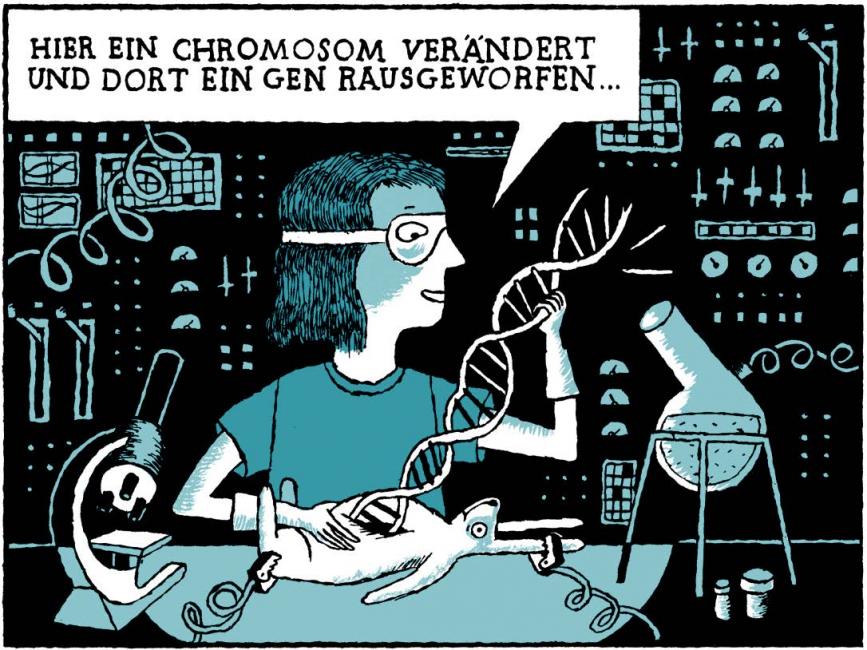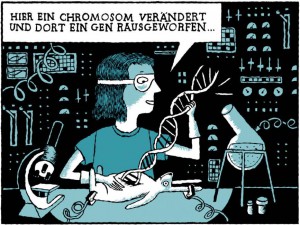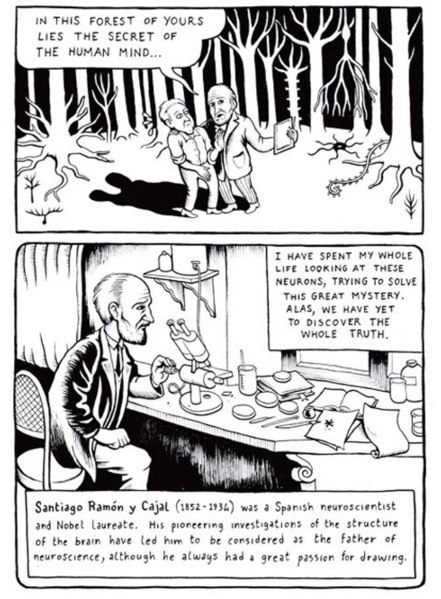Science and Comics: Bridging the Science and Art Gap
“Science + comics = awesome” is the motto of an event in Leeds during British Science Week 2016, organized by the West Yorkshire British Science Association branch.
The event in Leeds offers an exhibition, a workshop and a lecture. We got in touch with Anna Woolman—biology student, comics enthusiast and one of the project leaders.
1) Hi Anna! Tell us about the ‘Discover science through comics’ exhibition and how you got the idea!
I have a passion for science and a love of all things visually pleasing, so I thought… why not encourage others to engage with science by merging the two?
What initially sparked this for me was coming across a Berlin exhibition that was exhibiting two different science communication comic collections: “Anthropocene Milestones“, which explores the different scientific advances that have shaped the last 200 years, and “Klar so weit?” i.e. “Savvy?”, which illustrates a range of varying scientific topics from space to genetics to butterflies. I felt it was a shame that the people of Leeds were missing out on thought provoking ideas presented in such an accessible medium.
Leeds is a very cultural city and there is a strong love of all things creative here. However, science usually gets left out of people’s thoughts when thinking about culture and creativity. I really felt that there was a need to somehow combine the two apparently ‘opposing’ subjects to get the public to engage with science and embrace it instead of shy away.
Since discovering the two German comics collections, the exhibition has grown and we are now exhibiting a variety of different science comics and animations from artists and science enthusiasts from all over. To get people more actively involved we are also pleased to be hosting ‘Newcastle Science Comic’ artists, including their Editor In Chief, Lydia Wysocki, to put on a comics making drop-in workshop. Lydia will also be presenting a talk on why comics are such a great science communication medium. I personally think every city should have a science comics exhibition (but I would say that). There are just so many great comics and animations out there that people need to see!
2) Why should your exhibition matter to the young scientist?
It’s important that scientists are able to communicate their research to people of all ages. From my experience, the general public is interested in new scientific research although many are under the impression that it is inaccessible or not their ‘cup of tea’. Of course various science museums and centres provide excellent accessible science for children and adults, but there are still lots more opportunities to bring science to the people. It is our [scientists’] responsibility to demonstrate to others why we find science so fascinating and encourage them to engage with it!
So why should this project matter to the young scientist (or all scientists for that matter)? Because it is just one example of the huge number of ways to creatively engage the general public with scientific research. The possibilities are endless and I think every scientist should explore different ways to inspire others about science.
Anyone who is interested in getting involved with science outreach should see if there are any British Science Association (BSA) branches in their area (see here). BSA is always looking for more enthusiastic volunteers to put on engagement events. They also host various large-scale events throughout the year including the British Science Festival and British Science Week, the latter of which ‘Discover Science Through Comics’ is a part of, so look out for these!
3) Give three pieces of advice to the science or tech person who wants to create the best possible science events!
- Think about what inspired you to go into a STEM (science, technology, engineering and maths) area – this probably would inspire others too, but maybe they weren’t lucky enough to experience it like you did.
- Think about who your target audience is for a particular event – adults? children? families? This is really important as this will affect how you deliver and promote the event. For example, you don’t want it to be patronising to adults or overwhelming for kids!
- Don’t be put off if you’ve never done it before. All science communicators and engagers started somewhere. The first event may be daunting to you, but putting on an event that people have benefited from and been inspired by is very rewarding!Science outreach activities come in all shapes and sizes: debates, exhibitions, hands on activities, workshops, stalls, etc. Nothing is too big or too small. If you are unsure about how to go about putting on your first event then get in contact with the BSA and they will provide you with help to get started.
4) A bit more about comics: Why is it a useful format? What is happening globally in this field? Are there any especially interesting projects? Which is your favourite comic?
Most people grew up reading comics, it’s a medium everyone is familiar with. It’s a visually simple, but pleasing format that can engage a whole variety of people of different ages and with different tastes. For example, children often enjoy more bold, brightly coloured images whereas adults may enjoy more minimal imagery – and, as the exhibition will demonstrate, there’s science comics and animations that cater to each person’s artistic interests, while also communicating different scientific topics. If that isn’t a win-win situation, then I don’t know what is!
Science comics and animations are being produced all over the world and public interest in them continues to grow. I’m still relatively new to exploring this area myself, so I’m still learning about it and discovering new projects. There are a lot of creative and skilled people who have a passion for science out there. After the exhibition I will upload a list of the artists, comics, and animations that we were lucky enough to be able to display (and those that we weren’t) so people can explore them further.
I don’t think that I have a favourite comic as all of the comics at this exhibition have sparked my interest in their own way. I think I’ll turn this question around and ask your readers if they have any favourite science comics or animations? If so, send them my way – I’m always keen to discover more and expand my understanding of this area.
- Girls in STEM: brain, farts, and a female science comedian - November 30, 2016
- Innovation, imagination, and narrative: Science new wave cinema - October 5, 2016
- Lydia Wysocki on science comics as art-science collaborations - July 12, 2016
- Science and Comics: Bridging the Science and Art Gap - March 9, 2016








Leave a Reply
Want to join the discussion?Feel free to contribute!